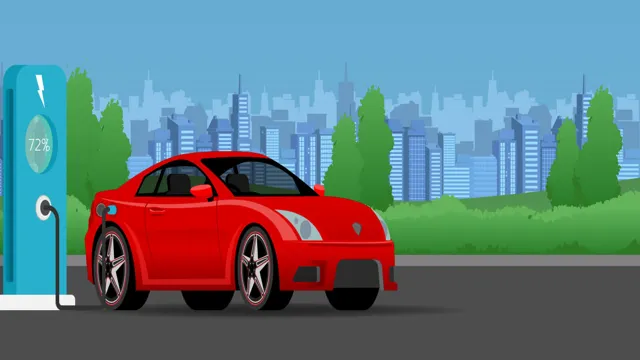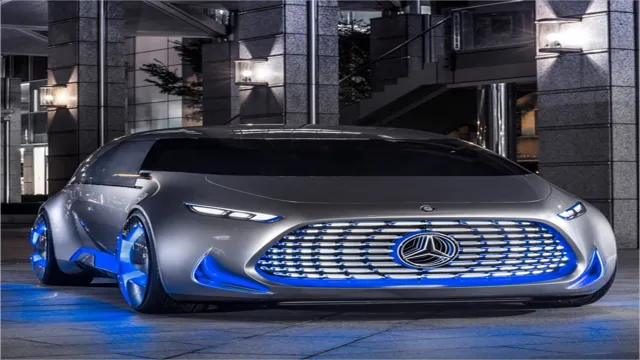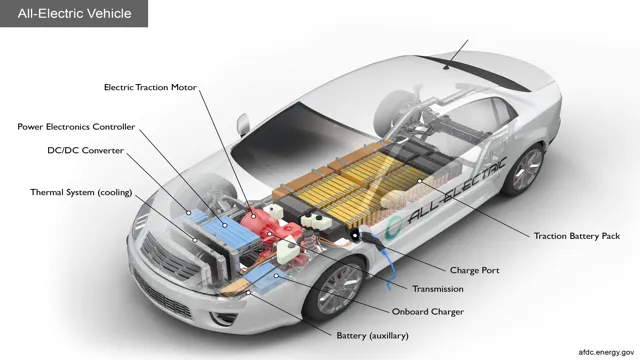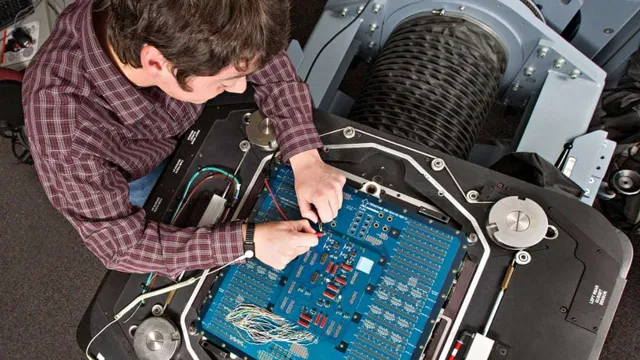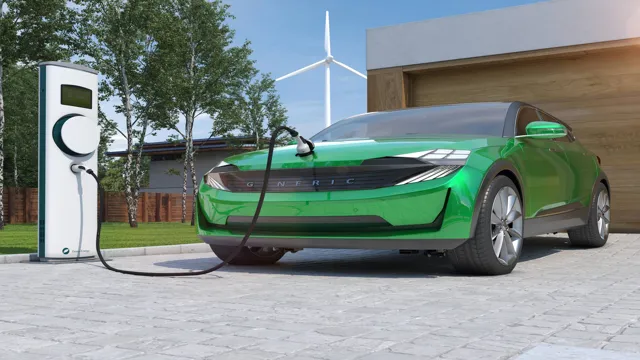Revving Up the Future: Get the Latest on Electric Cars Technology
Electric cars have been around for several years, gradually becoming a popular and a more convenient mode of transportation. But with the latest advancements in technology, electric cars are raising the bar in terms of sustainability, efficiency, and convenience, leaving traditional gasoline-powered cars far behind. Today’s electric cars are more advanced than ever before, offering features like longer range, faster charging, and smarter on-board systems.
In this blog, we’ll explore the latest technology on electric cars and show you why they’re becoming an increasingly viable option for drivers all over the world. So buckle up, and let’s take a ride into the future of electric cars!
1. The Rise of EVs
Electric cars are becoming more and more popular as people seek out eco-friendly transportation options. With the latest technology on electric cars, they’re more efficient and affordable than ever before. For starters, EVs don’t use gas, which can save drivers a lot of money on fuel costs.
Additionally, EVs have longer ranges than ever before, which means less time spent charging and more time cruising. Perhaps most excitingly, electric cars are becoming more widely available, with luxury and mainstream car makers offering a wide variety of models to choose from. Whether you’re in the market for a sleek sports car or a practical family vehicle, there’s an electric car out there for you.
As we look towards the future, it’s clear that EVs will continue to play an increasingly important role in the world of transportation, and we can’t wait to see what the latest developments bring.
2. Battery Technology Advancements
With the rise of electric vehicles (EVs), there has been a significant advancement in battery technology. The need for batteries that can store more energy for longer periods of time has led to the development of different types of batteries, such as lithium-ion and solid-state batteries. These new technologies have the potential to make EVs more efficient and affordable, as they offer longer driving ranges and faster charging capabilities.
Not only that but advancements in battery technology have also enabled the use of batteries in other applications, such as renewable energy storage systems and portable electronic devices. The future looks bright for battery technology, as scientists and engineers continue to work towards creating more efficient and sustainable batteries that can power the devices we use every day.
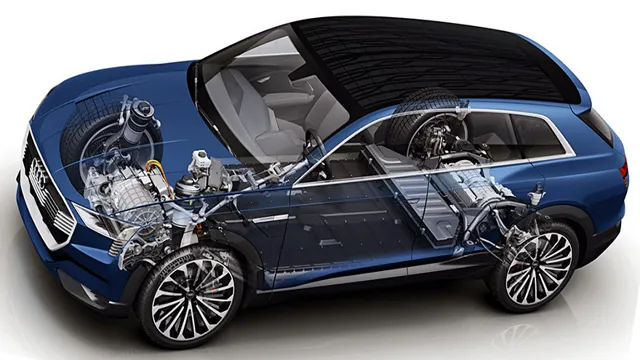
3. Wireless Charging
Wireless charging is becoming increasingly popular, particularly with the rise of electric vehicles (EVs). Companies like Tesla have already introduced wireless charging for their vehicles, and it’s likely that more manufacturers will follow suit. This technology eliminates the need for cords and plugs, making it more convenient for drivers to charge their cars.
But it’s not just limited to EVs- wireless charging is also being used for smaller devices like phones and laptops. This means that we could potentially see a future where all of our devices are charged wirelessly, without the need for cords cluttering up our homes and workspaces. While there are still some limitations to wireless charging, such as slower charging speeds and higher costs, it’s clear that this technology has a lot of potential to revolutionize the way we power our devices and vehicles.
4. Autonomous Driving Technology
The latest technology on electric cars includes autonomous driving technology, a groundbreaking development in the automotive industry. With this technology, vehicles can operate without the need for a driver, making transportation safer and more efficient. The technology uses sensors and advanced algorithms to navigate the roads and make decisions about driving.
It can detect obstacles in the vehicle’s path and adjust speed accordingly, making it an ideal solution for crowded cities and highways. Additionally, autonomous electric vehicles have the potential to reduce environmental impacts by minimizing fuel consumption and emissions. As this technology continues to advance, it has the potential to revolutionize the way we think about transportation.
The integration of autonomous driving technology in electric cars can lead to a future with greater safety and more eco-friendly transportation options.
5. Enhanced Safety Features
Autonomous driving technology has come a long way from being a concept in a sci-fi movie to a reality that we are currently living in. The technology has not only revolutionized the way we commute but also enhanced safety features in our vehicles. As the vehicles are equipped with sensors and cameras that gather real-time data, it allows for better decision-making and quicker reaction times than human drivers.
The autonomous driving technology has also limited the risk of human error, as the vehicles are designed to follow traffic rules to the letter. With the incorporation of this technology, we can expect a significant decrease in traffic accidents and fatalities on the road. As the technology evolves, it is expected to bring more advanced features that can further improve safety and ultimately provide a safer driving experience.
6. AI-Powered Systems
As technology evolves, we are seeing promising advancements in the field of autonomous driving. These AI-powered systems are designed to replicate human decision-making processes in real-time, ensuring safe and efficient driving experience. The core of their technology lies in machine learning algorithms, which enable the vehicles to learn, adapt and improve their performance over time.
As a result, these autonomous vehicles can collect data from sensors and cameras around the car and make informed decisions based on their surroundings. We have already seen some examples of self-driving cars on the market, such as Tesla’s autopilot and Waymo’s fully autonomous vehicles. However, there are still some significant hurdles to overcome before we will see widespread adoption of autonomous driving technology.
The technology still has limitations in terms of navigating complex road scenarios, such as responding to pedestrians and unpredictable weather conditions. Additionally, there are legal and ethical questions to consider, such as who is responsible if an accident occurs, and how to ensure the safety of passengers and other road users. Despite these challenges, autonomous driving technology holds immense potential for revolutionizing the way we travel and interact with our environment.
By reducing human error and enabling more efficient use of resources, these systems can help reduce accidents, traffic congestion and carbon emissions. As the technology continues to evolve, we can look forward to a future where transportation is safer, smarter and more sustainable.
7. The Future of Electric Cars
Autonomous driving technology is one of the most exciting aspects of the future of electric cars. It promises to revolutionize the way we travel, making it safer, more efficient, and more environmentally friendly. With the rapid advancements being made in this field, it’s only a matter of time before we see fully autonomous cars on the roads.
This technology has the potential to reduce or even eliminate human error, which is responsible for the majority of accidents on our roads. As a result, it’s not hard to imagine a future where traffic fatalities are a thing of the past. However, there are still some challenges that need to be overcome before this vision can become a reality.
One of the biggest obstacles is developing the infrastructure needed to support these vehicles. This includes everything from improved road networks to new charging facilities.
8. Conclusion
In conclusion, the latest technology on electric cars has truly redefined the way we approach traditional forms of transportation. With advancements in battery life, charging speeds, and overall efficiency, electric cars are quickly becoming a viable option for daily commuters and eco-conscious drivers alike. Not to mention, the added benefits of reduced emissions and lower operating costs only add to the appeal.
It’s clear that the future of personal transportation is electric, and with each new breakthrough in technology, we’re one step closer to a greener, more sustainable tomorrow. So, buckle up and enjoy the ride – the electric revolution is well underway!”
FAQs
What are the latest technological advancements in electric cars?
The latest technological advancements in electric cars include wireless charging, increased battery capacity, regenerative braking, and advanced driver assistance systems.
Can electric cars travel long distances?
Yes, some electric cars have a range of over 300 miles on a single charge, making them suitable for long-distance travel.
How long do electric car batteries last?
Electric car batteries typically last between 8-10 years or around 100,000 miles, but this can vary depending on the make and model of the vehicle.
What is fast charging and how does it work in electric cars?
Fast charging is a technology that allows for the rapid charging of electric car batteries. It works by delivering a higher voltage and amperage to the battery, which allows for a quicker recharge time. Some electric cars can be charged up to 80% in just 30 minutes using fast charging technology.

